Hyundai i30 vs Porsche 911 Coupe – Differences & prices compared
Compare performance, boot capacity, efficiency and price at a glance.
Find out which car is the better choice for you – Hyundai i30 or Porsche 911 Coupe?
Costs and Efficiency: Price and efficiency are often the first things buyers look at. Here it becomes clear which model has the long-term edge – whether at the pump, the plug, or in purchase price.
Hyundai i30 has a clearly advantage in terms of price – it starts at 24000 £, while the Porsche 911 Coupe costs 116800 £. That’s a price difference of around 92837 £.
Fuel consumption also shows a difference: Hyundai i30 manages with 5.70 L and is therefore convincingly more efficient than the Porsche 911 Coupe with 10.10 L. The difference is about 4.40 L per 100 km.
Engine and Performance: Under the bonnet, it becomes clear which model is tuned for sportiness and which one takes the lead when you hit the accelerator.
When it comes to engine power, the Porsche 911 Coupe has a significantly edge – offering 711 HP compared to 140 HP. That’s roughly 571 HP more horsepower.
In acceleration from 0 to 100 km/h, the Porsche 911 Coupe is convincingly quicker – completing the sprint in 2.50 s, while the Hyundai i30 takes 9.60 s. That’s about 7.10 s faster.
In terms of top speed, the Porsche 911 Coupe performs clearly better – reaching 330 km/h, while the Hyundai i30 tops out at 197 km/h. The difference is around 133 km/h.
There’s also a difference in torque: Porsche 911 Coupe pulls decisively stronger with 800 Nm compared to 253 Nm. That’s about 547 Nm difference.
Space and Everyday Use: Cabin size, boot volume and payload all play a role in everyday practicality. Here, comfort and flexibility make the difference.
Seats: Hyundai i30 offers somewhat more seating capacity – 5 vs 4.
In curb weight, Hyundai i30 is slightly lighter – 1291 kg compared to 1525 kg. The difference is around 234 kg.
In terms of boot space, the Hyundai i30 offers slight more room – 395 L compared to 373 L. That’s a difference of about 22 L.
When it comes to payload, Hyundai i30 clearly perceptible takes the win – 509 kg compared to 310 kg. That’s a difference of about 199 kg.
Who wins the race?
The Porsche 911 Coupe proves to be wins solidly and therefore becomes our DriveDuel Champion!
Porsche 911 Coupe is the better all-rounder in this comparison.
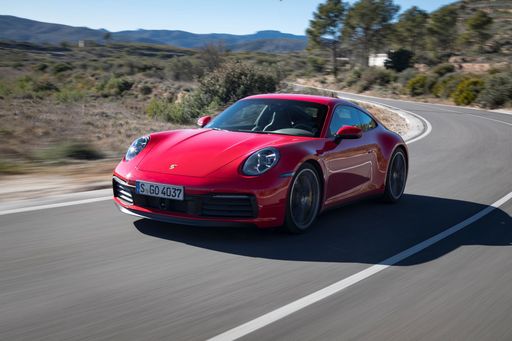
Porsche 911 Coupe
Hyundai i30
The Hyundai i30 stands out in the hatchback segment with its sleek design and modern features. It offers a comfortable ride with a well-crafted interior that caters to both driver and passengers. With its emphasis on safety and technology, the i30 provides a balanced driving experience suitable for urban and suburban environments.
details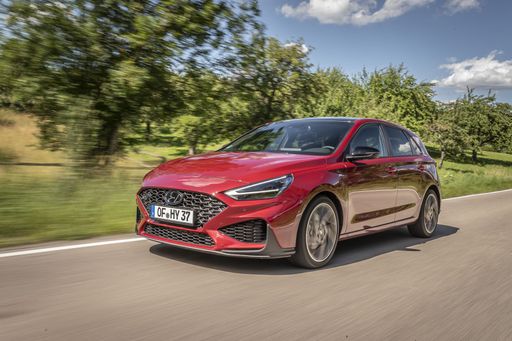 @ hyundai.news
@ hyundai.news
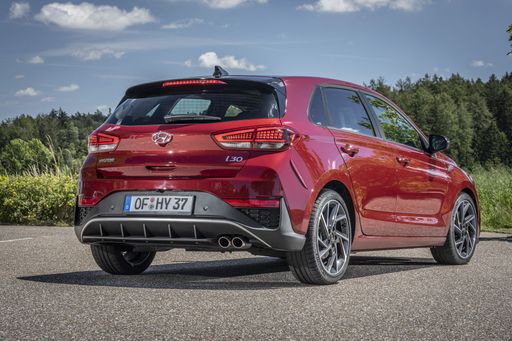 @ hyundai.news
@ hyundai.news
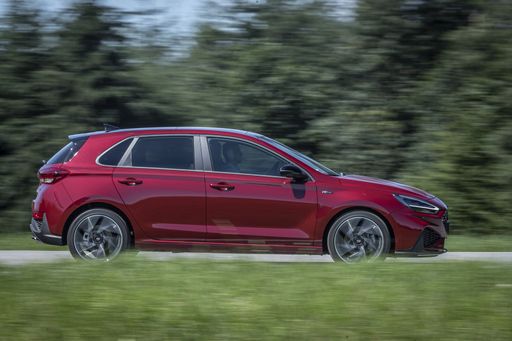 @ hyundai.news
@ hyundai.news
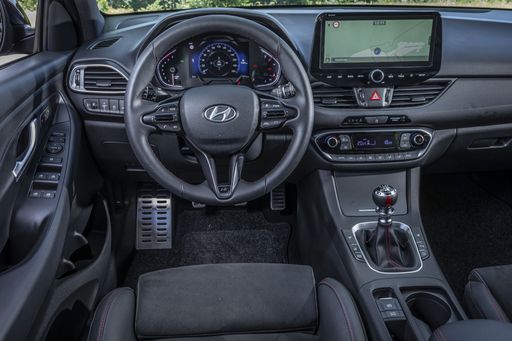 @ hyundai.news
@ hyundai.news
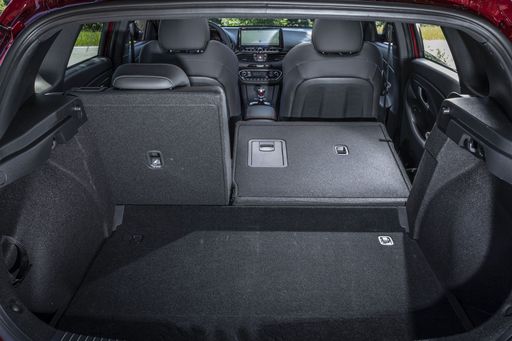 @ hyundai.news
@ hyundai.news
Porsche 911 Coupe
The Porsche 911 Coupe continues to embody the perfect blend of tradition and innovation, offering an exhilarating driving experience that captures the essence of classic sports car performance. Its iconic design, characterised by sleek aerodynamic lines and a distinctive silhouette, pays homage to its storied heritage while integrating modern enhancements. Inside, the cabin effortlessly combines luxury with driver-focused technology, ensuring that every journey is as comfortable as it is thrilling, making it a timeless choice for enthusiasts.
details @ presse.porsche.de
@ presse.porsche.de
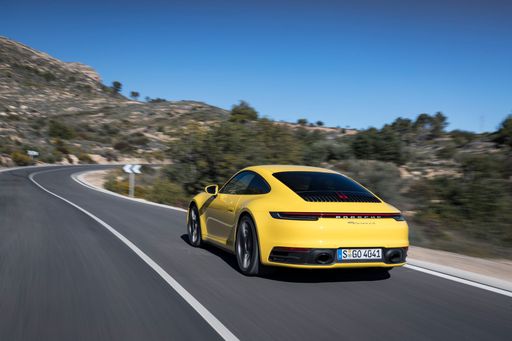 @ presse.porsche.de
@ presse.porsche.de
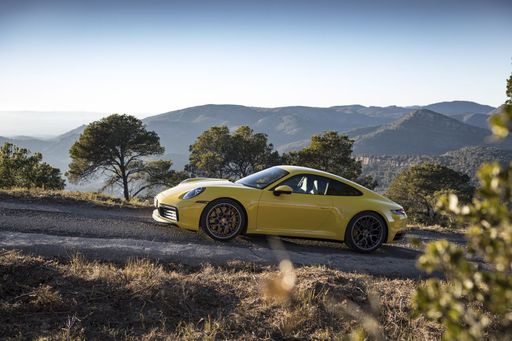 @ presse.porsche.de
@ presse.porsche.de
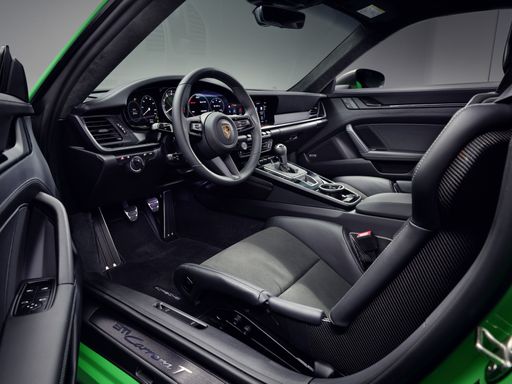 @ presse.porsche.de
@ presse.porsche.de

|

|
|
|
|
Costs and Consumption |
|
|---|---|
|
Price
24000 - 29300 £
|
Price
116800 - 234900 £
|
|
Consumption L/100km
5.7 - 6 L
|
Consumption L/100km
10.1 - 13.8 L
|
|
Consumption kWh/100km
-
|
Consumption kWh/100km
-
|
|
Electric Range
-
|
Electric Range
-
|
|
Battery Capacity
-
|
Battery Capacity
-
|
|
co2
130 - 136 g/km
|
co2
229 - 312 g/km
|
|
Fuel tank capacity
50 L
|
Fuel tank capacity
63 - 64 L
|
Dimensions and Body |
|
|---|---|
|
Body Type
Hatchback
|
Body Type
Coupe
|
|
Seats
5
|
Seats
2 - 4
|
|
Doors
5
|
Doors
2
|
|
Curb weight
1291 - 1407 kg
|
Curb weight
1525 - 1815 kg
|
|
Trunk capacity
395 L
|
Trunk capacity
264 - 373 L
|
|
Length
4340 mm
|
Length
4535 - 4572 mm
|
|
Width
1795 mm
|
Width
1852 - 1900 mm
|
|
Height
1455 mm
|
Height
1279 - 1322 mm
|
|
Max trunk capacity
1301 L
|
Max trunk capacity
-
|
|
Payload
463 - 509 kg
|
Payload
205 - 310 kg
|
Engine and Performance |
|
|---|---|
|
Engine Type
Petrol, Petrol MHEV
|
Engine Type
Petrol, Full Hybrid
|
|
Transmission
Manuel, Automatic
|
Transmission
Automatic, Manuel
|
|
Transmission Detail
Manual Gearbox, Dual-Clutch Automatic
|
Transmission Detail
Dual-Clutch Automatic, Manual Gearbox
|
|
Drive Type
Front-Wheel Drive
|
Drive Type
All-Wheel Drive, Rear-Wheel Drive
|
|
Power HP
100 - 140 HP
|
Power HP
394 - 711 HP
|
|
Acceleration 0-100km/h
9.6 - 13.1 s
|
Acceleration 0-100km/h
2.5 - 4.5 s
|
|
Max Speed
178 - 197 km/h
|
Max Speed
294 - 330 km/h
|
|
Torque
172 - 253 Nm
|
Torque
450 - 800 Nm
|
|
Number of Cylinders
3 - 4
|
Number of Cylinders
6
|
|
Power kW
74 - 103 kW
|
Power kW
290 - 523 kW
|
|
Engine capacity
998 - 1482 cm3
|
Engine capacity
2981 - 3996 cm3
|
General |
|
|---|---|
|
Model Year
2024
|
Model Year
2022 - 2026
|
|
CO2 Efficiency Class
D, E
|
CO2 Efficiency Class
G
|
|
Brand
Hyundai
|
Brand
Porsche
|
What drive types are available for the Hyundai i30?
Available configurations include Front-Wheel Drive.
The prices and data displayed are estimates based on German list prices and may vary by country. This information is not legally binding.
